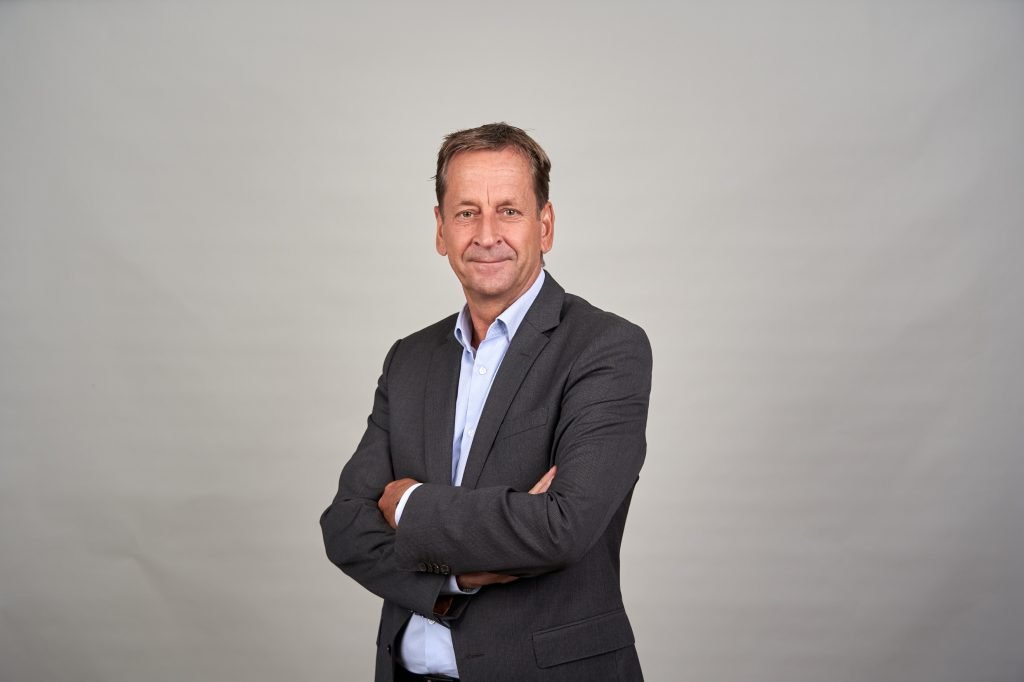American Tower Corporation (ATC) Kenya is currently valued at Sh199.29bn ($1.4bn), and has grown, step by step to own 3,650 towers, directly employs 95 people and hundreds of others indirectly, and is most likely one of the biggest private investor in the ‘lease’ sector.
By Victor Adar
While many chief executives would find it a great discomfort to roam the continent, one Thomas Sonesson tells of the joys and challenges of working in diverse regions. The head of ATC Kenya, a company that provides infrastructure for telecommunications, including cellular and wireless towers, radio and television broadcast equipment and notably services that accelerate network deployment for the communications industry, says to respond to the needs of the region, reliable electricity, internet and favourable business environment is necessary.
Mr. Sonesson’s professional journey commenced in Ghana where he was the second chief executive of ATC Ghana. He then proceeded to ATC in Uganda and worked for three and a half years as the second CEO. By the time his tenure was about to end in Uganda, six years ago, he was tasked to look into opportunities that Kenya could offer.
“At that point in time (2017) we put Kenya and Egypt on the radar. We wanted to do something and since I have a background in Kenya (during my years in Ghana my kids were still in school in Kenya), I took up the assignment and today we have a substantial business in Kenya. I would say I am the founding father in Kenya, for this,” says the visibly happy ATC Kenya boss.
He went on: “We are actually a real estate company even if we are regulated by Communications Authority, and our core business is leasing space, transmission and radio equipment… our core business is providing space in the towers, space on the ground, power to the tower, and security. So we may talk about towers, but the real name is infrastructure. We have infrastructure on roof tops – that is not a tower. We are talking about wireless telecommunication.”
ATC Kenya was incorporated in 2017 to deploy innovative wireless infrastructure solutions tailored to the needs of Mobile Network Operators (MNOs), Internet Service Providers (ISPs), television and radio stations, as well as tier one mobile companies in the region. Six years on, the company has almost 3,700 towers under its fold, with overall investment in the country valued at Sh199.29 billion ($1.4 billion) thus far.
In August 2018, the company bought two portfolios – one from Telkom Kenya, and another Eaton Towers Kenya Limited. Today, it owns the ‘largest independent telecommunication sites’ portfolio in the country.
He laughs, and says that Telkom Kenya transferred 715 towers (not the widely reported 723) to ATC Kenya after an approval from Communications Authority of Kenya.
“Today, there’s a lot of news a round Telkom Kenya, and everyone is unhappy. That’s the problem we have right now,” he says. That means, ATC Kenya is losing out money. And that also means, as man at helm, he must find a way of offering good returns to the firm’s shareholders.
“Right now we are sitting in a very tricky situation with Telkom Kenya. They owe us Sh4.5 billion, an amount which is growing by Sh350 million every month,” he says.
Sonesson, concerned over challenging business ecosystem always witnessed whenever a new administration takes over, says there is value in predictable business ecosystem. He adds that the American backed company did a feasibility study and attributes the choice to operate in Kenya to performance and ‘strong’ economy. Besides Kenya and Uganda, ATC is replicated in many countries including Ghana, Niger, Nigeria, Bukina Faso, and South Africa based on a number of economic metrics.
“What’s important for us is stability. You have to select a market with good governance, good stable currency and a growth potential. So, coming to Kenya was an easy choice for us.
“We invest long term so we need a stable currency, something we can predict in terms of growth, in terms of fiscal policy, (controlled) interest rates, at least all those should be predictable. Then, we need an environment that has good regulation that doesn’t change with every five years. So we need policies that are embedded in the system that does not change because we have a new kid on the block,” he explains.
Unfortunately, on the energy front, he says, the country needs to address the issue of cost and inefficiencies – electricity is a big challenge in most African countries so much that energy stakeholders must up their game.
And to mitigate this challenge, ATC Kenya, he says, has built an in-house solar farm in Donholm, Nairobi, where portable batteries are charged. The concept aims at replacing diesel generators, which have carbon footprint, and carbon dioxide emissions, and is quite expensive compared to solar charged batteries. The batteries also come in handy in remote places where a broken transformer would take two days to fix.
“In Kenya, in general, things are working. We have power even if it’s expensive. Most of our towers across Kenya have solar systems. We have installed solar panels that we use during the day then at night we use power from KPLC,” he says.
Sonesson has been with ATC Kenya for the last five years. He has, literally, built up a team that has taken the business from zero to where it is right now (worth $1.4bn), with close to 3,700 towers, 95 direct employees, 140 contractors, and another 2,000 sub contracted staff.


